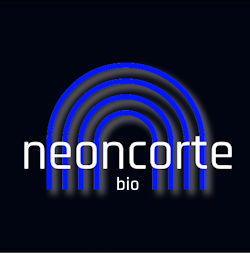wet lab vs dry lab: Dry Lab CRO solutions powered by AI
Wet or dry research:
What is a Dry Lab CRO?
A Dry Lab CRO (Contract Research Organization) is a research service provider specializing in AI-driven computational biology, bioinformatics, and in silico modeling for drug discovery, enzyme engineering, antibody discovery, and aptamer design. Unlike traditional Wet Lab CROs, which rely on physical experiments, Dry Lab CROs leverage machine learning, computational modeling, and cloud-based simulations to accelerate research and development.

AI-powered services of our Dry Lab CRO:
-
🔬 Protein & Enzyme Engineering
- AI-guided de novo enzyme design & optimization
- Computational stability & activity predictions
- AI-driven mutagenesis for improved function
-
🧬 Antibody Discovery & Design
- Virtual screening & AI-driven antibody design
- Predictive modeling for affinity & specificity
- AI-enhanced humanization & developability optimization
-
🧪 Aptamer Design & Optimization
- AI-powered aptamer discovery for high-affinity binding.
- Computational modeling for structural refinement.
- In silico screening for specificity and stability.
-
☁ Cloud Infrastructure & Security for Biotech
- Secure cloud-based data storage & computation
- High-performance computing (HPC) for large-scale modeling
- AI-driven data encryption & access management
Dry Lab vs Wet Lab: Key Differences & Synergies
Dry Lab CRO Advantages:
-
50% Faster Research Cycles
AI-driven simulations reduce experimental time -
Up to 70% Cost Reduction
Minimized need for expensive reagents and lab facilities -
Higher Precision & Predictability
Computational models reduce trial-and-error. -
Scalability & Remote Access
Cloud-based infrastructure enables global collaboration. -
Turn Sunk Costs into Insights
Failed wet lab experiments can inform AI-driven models, transforming losses into valuable data. -
From Months to Days
Traditional wet lab experiments can take months, while dry lab approaches deliver results in days. -
AI is a Hype, But Dry Lab CRO is Tangible
AI promises the future, but dry lab CRO services are already making biotech more efficient and reliable.
Wet Lab Collaboration:
While Dry Lab CROs significantly reduce costs and time, they complement rather than replace Wet Lab CROs. Combining computational models with physical validation ensures optimal experimental design, faster hypothesis testing, and higher success rates.
-
AI-Driven Target Selection →
Wet Lab Validation -
In Silico Drug Screening →
Optimized Assay Development -
Computational Protein Engineering →
Lab-Based Functional Testing

Why Choose Our Dry Lab CRO?
-
🚀 Speed:
AI-driven models reduce research time by up to 50%. -
💰 Cost-Efficiency:
In silico research cuts R&D budgets by up to 70% -
🎯 Precision:
AI reduces errors, enhancing predictability & reproducibility. -
🔗 Seamless Integration:
Works alongside Wet Lab CROs for full-spectrum research. -
📊 Maximize Past Investments:
Convert failed wet lab experiments into valuable AI-driven insights. -
⏳ Time Matters:
Get results in days instead of waiting months for wet lab experiments.
Contact Dry Lab CRO
to Accelerate Your Research!
Let’s revolutionize biotech together.
Schedule a consultation today!
Schedule a consultation today!
Neoncorte Bio
Where AI Meets Biotechnology
Neoncorte Bio is at the forefront of the convergence between artificial intelligence and protein & enzyme engineering. Our team comprises experts in computational biology, bioinformatics, and machine learning, all driven by a mission to accelerate innovation in enzyme design. By leveraging our advanced AI models, we provide unparalleled solutions that enhance efficiency, reduce costs, and push the boundaries of what's possible in protein engineering & enzyme engineering
Proud Member of Leading Global AI Programs
Neoncorte Bio is part of the NVIDIA Inception and Nebius for Startups programs — two of the world’s leading ecosystems for high-performance AI innovation. These partnerships strengthen our ability to deliver next-generation AI-driven protein, enzyme, and aptamer engineering.
-
 As a member of NVIDIA Inception, Neoncorte Bio gains access to cutting-edge GPU technologies, expert guidance, and a global AI ecosystem that supports companies from prototype to production. The program empowers us to explore new AI opportunities and build high-performance biological design pipelines powered by NVIDIA’s world-class platform.
As a member of NVIDIA Inception, Neoncorte Bio gains access to cutting-edge GPU technologies, expert guidance, and a global AI ecosystem that supports companies from prototype to production. The program empowers us to explore new AI opportunities and build high-performance biological design pipelines powered by NVIDIA’s world-class platform. -
 Through Nebius for Startups, we gain access to high-performance compute infrastructure optimized for large-scale AI workloads, along with hands-on technical guidance and a strong community of innovative AI companies. Nebius enables us to train and deploy complex biological models more efficiently — accelerating enzyme, protein, and aptamer design while supporting rapid scaling of our R&D pipelines.
Through Nebius for Startups, we gain access to high-performance compute infrastructure optimized for large-scale AI workloads, along with hands-on technical guidance and a strong community of innovative AI companies. Nebius enables us to train and deploy complex biological models more efficiently — accelerating enzyme, protein, and aptamer design while supporting rapid scaling of our R&D pipelines.

Publications
Explore our contributions to the forefront of biotechnology and artificial intelligence. From AI-driven enzyme engineering to deep learning applications in data analysis, our publications highlight innovative solutions to complex challenges in molecular biology and computational science.
- Modification of natural enzymes to introduce new properties and enhance existing ones is a central challenge in bioengineering. This study is focused on the development of Taq polymerase mutants that show enhanced reverse transcriptase (RTase) activity while retaining other desirable properties such as fidelity, 5′-3′ exonuclease activity, effective deoxyuracil incorporation, and tolerance to locked nucleic acid (LNA)-containing substrates.
- The transcriptomic data are being frequently used in the research of biomarker genes of different diseases and biological states. The most common tasks there are the data harmonization and treatment outcome prediction. Both of them can be addressed via the style transfer approach. Either technical factors or any biological details about the samples which we would like to control (gender, biological state, treatment, etc.) can be used as style components.
- List of all Neoncorte Bio publications dedicated to Molecular Biology, Biotechnology, Artificial Intelligence and Artificial Neural Networks, published mostly by Nikolay Russkikh, CEO of Neoncorte Bio
Frequently Asked Questions (FAQs)
A Dry Lab CRO is a research organization that uses AI, computational modeling, and cloud-based bioinformatics to accelerate drug discovery, protein engineering, and molecular research without the need for physical experiments.
A Dry Lab CRO enhances Wet Lab CROs by optimizing target selection, reducing trial-and-error, and streamlining experimental design before validation in a physical lab.
- Faster research cycles (up to 50% reduction in time)
- Lower costs (up to 70% savings)
- Higher precision with AI-powered analysis
- Scalability with cloud-based infrastructure
- Biotech, pharmaceuticals, healthcare, synthetic biology, and industrial enzyme applications.
- Our cloud infrastructure follows strict security protocols, ensuring data encryption, compliance with regulations, and access control for confidentiality.
Our Expertise in Action
With extensive experience in AI applications and software engineering tailored to the life sciences, we specialize in solving complex challenges and delivering innovative solutions for our customers. Our work demonstrates a deep understanding of cutting-edge technologies and their application in the real world.
Here are examples of the types of projects we have successfully delivered:
Here are examples of the types of projects we have successfully delivered:
- Automated NGS Data Analysis:Designed a production-grade solution for the automated processing, annotation, and analysis of Next-Generation Sequencing (NGS) data.
- Single-Cell Data Integration:Built state-of-the-art tools for integrating multimodal single-cell data, achieving recognition for technical excellence.
- Metagenomic Classification Algorithms:Developed advanced methods for classifying sequencing reads in metagenomics research.
- High-Throughput Image Processing Pipelines:Engineered an efficient pipeline to process millions of sequencing images with exceptional accuracy.
- Cell Counting via AI:Created a computer vision solution for precise cell counting in microphotography images, streamlining data analysis.
Get in touch with us
Phone: +1-503-754-3958 in US
Email: contact@neoncorte.com
Email: contact@neoncorte.com
©2024-2026 Neoncorte Bio All Rights Reserved
